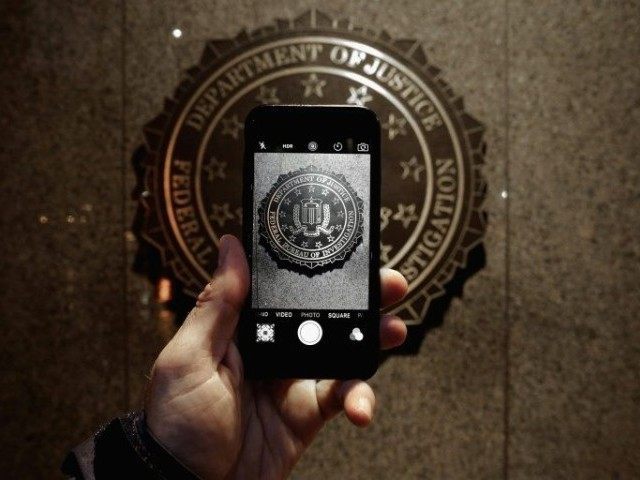The FBI is making a bid to break its stalemate against Apple, by tapping an Israeli firm to crack the iPhone’s supposedly unbreakable encryption.
According to a Reuters report, the Cellebrite company of Israel, which specializes in mobile forensic software, will attempt to unlock the smartphone used by San Bernardino jihadi Syed Farook.
The FBI’s demand for Apple to unlock the phone has grown into one of the most important legal battles of the Information Age, with ramifications for privacy, intelligence gathering, and even such basic questions of citizenship as whether the government can conscript a company to create a product it refuses to provide.
In the case at hand, the FBI wants Apple to write a modified version of its iOS 8 operating system, disabling the safeguard that would destroy the phone’s encrypted data after a certain number of incorrect password guesses. With that booby trap disabled, it would be a relatively simple matter to hammer the phone with thousands of computer-generated password guesses until it finally unlocks.
Cellebrite is described as “a subsidiary of Japan’s Sun Corp,” whose services include both providing forensics software and retrieving “data hidden inside mobile devices and technology.”
While Reuters speculates that cracking Farook’s phone could “bring an abrupt end to the high-stakes legal showdown which has become a lightning rod for a broader debate on data privacy in the United States,” some observers have argued this is a battle the government wanted, because the Farook case provided a platform with national-security implications to tackle the idea of selling absolutely unbreakable encryption to consumers.
However, Apple Insider reports that Monday, the Justice Department asked a federal court to postpone a hearing on the dispute with Apple until at least April 5, because an “outside party” had “shown the FBI a possible means of unlocking Farook’s phone, and that if successfully tested it would negate the need to recruit Apple.”
This is presumably a reference to Cellebrite, which must feel pretty good about its chances of hacking the iPhone… or else the FBI doesn’t feel so good about the prospect of slugging this out with Apple in the courts, including the court of public opinion.
The public remains sharply divided on the matter, with some polls giving Apple a slight edge, while others insist the public sides with the FBI’s request to unlock the phone.
Commenting on a Pew Research Center poll that tilted 51 to 38 percent in favor of the FBI, Nelson Granados at Forbes castigated both parties on Monday for “polarizing” the public with “unilateral” positions on privacy versus security. And yet, the bulk of Granados’ piece inevitably follows the circular path of pronouncing both FBI and Apple right and wrong… which boils down to an irreconcilable clash between the very sort of “unilateral” positions he decries.
At its core, this is a question about whether the public should be sold systems the government cannot access, and that is a binary Yes or No question… one that would be better settled with deliberation and legislation than court maneuvers, sound-bite artillery barrages, and perhaps a deus ex machina from white-hat hackers.
Perhaps Cellebrite can defuse the tensions between the Justice Department and Apple, for a little while… but there are many other cell phones law enforcement wants to unlock, and another one packed with even hotter information related to terrorism will come along soon enough.
The Encryption Wars surely won’t end if the San Bernardino jihadi’s cell phone is unlocked, because Pandora’s digital box has already been opened.

COMMENTS
Please let us know if you're having issues with commenting.